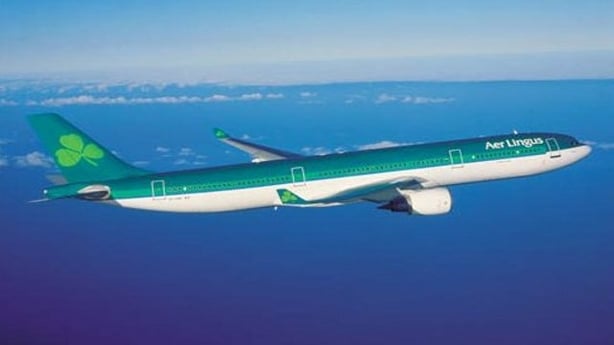Aer Lingus-owner IAG posted a lower than expected quarterly operating profit and said it expected 2016 profit to rise by a "low double digit" percent after attacks, strikes and Britain's vote to leave the European Union impacted travel demand and hit results.
IAG - which also owns carriers British Airways, Iberia, and Vueling - had initially forecast in February that it would grow 2016 profit by more than €900m, equivalent to a 40% rise on last year's result, but after the Brexit vote on 23 June, it said it no longer expected such a big increase.
IAG reported underlying operating profit up 4.7% to €555m for the three months ended 30 June, its second quarter, behind a consensus forecast of €562m.

Aer Lingus contributed operating profit of €42m to IAG over the first half of the year, as the group recorded a 67% rise in post-tax profit compared to the first half of 2015.
The group has already cut capacity growth plans for 2016 after attacks led to weaker trading.
The EU referendum outcome has caused the value of the pound to fall versus the dollar and euro, making it more expensive for Britons to travel abroad, and prompting consumer uncertainty.
In addition, attacks in Europe and a failed coup in Turkey have hit demand for travel, prompting rival airlines easyJet, Lufthansa and Air France-KLM to warn on the impact of political upheaval and security concerns.
IAG said it was seeing continued weakness in its UK operations, and that the fall in the pound was also hurting its results, which are reported in euro, in what is traditionally the most profitable part of the year for airlines.
Shares in IAG have lost about a third of their value since the beginning of the year, underperforming Britain's blue-chip index which is up 8%.
Commenting on the results, IAG CEO Willie Walsh said: "Our performance this quarter saw a negative currency impact of €148m, primarily due to the weak pound.
"Numerous external factors affected our airlines including the impact of terrorism, uncertainty around the UK's EU referendum and Spain's political situation and increased weakness in Latin American economies.
"This led to a softer than expected trading environment, especially in June. In addition, the airlines' operations have been considerably disrupted by 22 air traffic control strikes in Europe so far this year. This has impacted our passenger revenues," he added.

